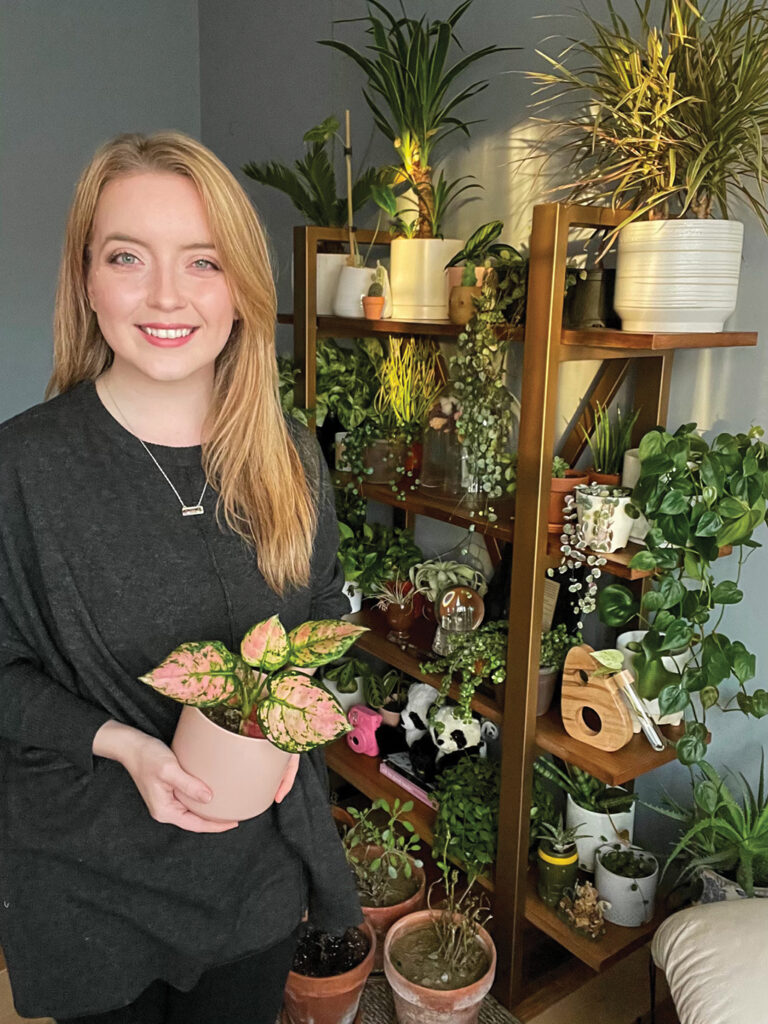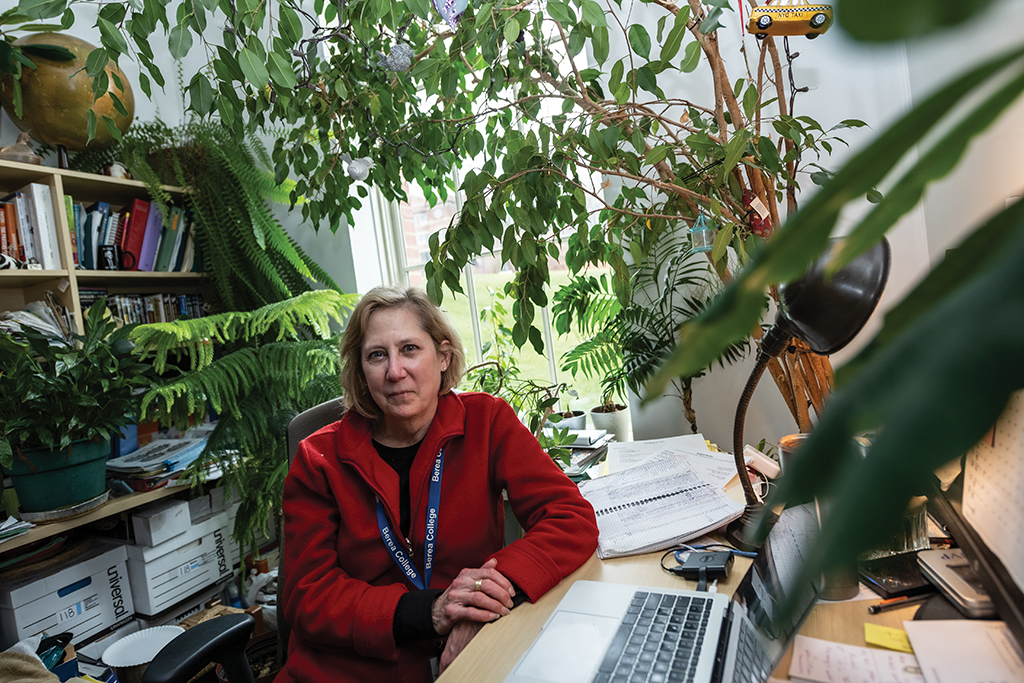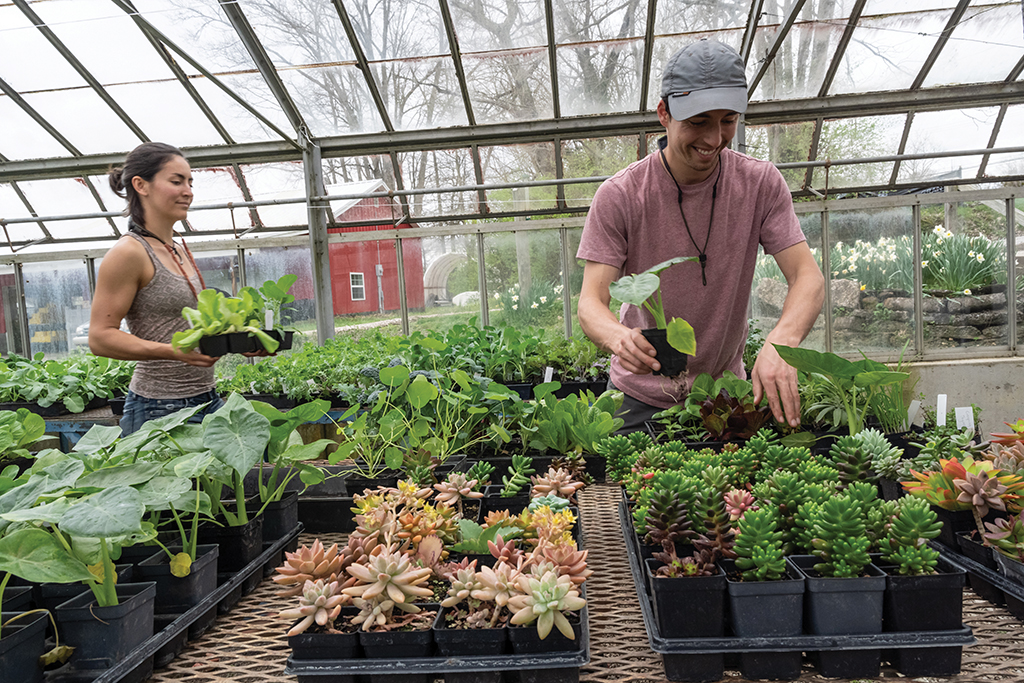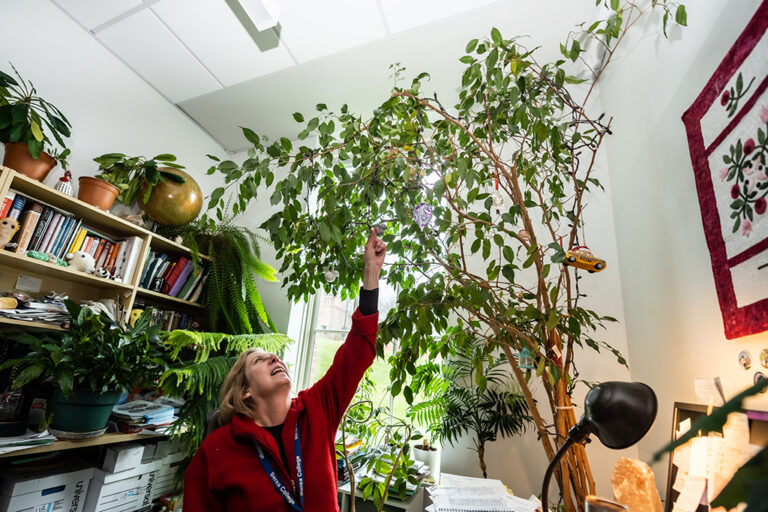Reduced stress levels. Cleaner air. Sharpened attentiveness. Increased productivity. A number of university and medical studies show that a simple element found in many homes and offices produces these benefits: plants. With increased stress and feelings of isolation that accompany the COVID-19 global pandemic, tending to lush, green plants is helping people through these challenging times.
In color theory—a collection of guidelines and rules established by Sir Isaac Newton in 1666 and applied by designers to communicate through the use of color—green is associated with tranquility, growth, renewal and compassion. Designers use a color wheel and research that connects color to mood, emotion and feelings, and throughout the pandemic Kentucky Gov. Andy Beshear encouraged residents to light their homes in green to show support to those who have suffered losses.

“Plants have kept me (mostly) sane throughout 2020,” said Brittany “Bee” Lakes, social media coordinator at Berea College. “My collection definitely grew during this time, likely because we have been unable to go anywhere, which led to more online plant shopping. I enjoy caring for my plants; watching them grow and thrive is very rewarding and allows me to focus on something positive rather than being weighed down by the challenges of 2020.”
Lakes, whose collection of houseplants stands at 75, said she used the months of isolation to connect with other “plant people” online through Instagram. She has made friends with plant lovers in neighboring Lexington, Ky., and as far away as Sweden, with whom she chats almost daily.
These online friendships started by sharing plant photos, discussing plant care, giving advice and sending one another interesting products, Lakes recalls. Over time, those online connections with new friends have evolved into meaningful relationships.
“We now ask how the other person is coping with all the stresses of 2020 and have worthwhile conversations,” she explains. “Building these connections through social media has meant a lot to me throughout the pandemic, and I know [it] has been impactful for them as well, especially those who live alone.”
Childhood weekends spent tending a vegetable garden with her paternal grandparents had a lasting impact on Dr. Dawn Anderson, instilling in her a life-long love of plants. A professor in the Biology department at Berea, Anderson says plants have always played a big part in her life. Their role became more significant during the pandemic.

“The pandemic totally shifted my teaching,” she said. “I am doing all my courses online as many students need them for their majors (nursing, biology and chemistry-biochemistry concentration).” Anderson, in her 28th year teaching at Berea, took a course redesign workshop in May offered by the College’s Center for Teaching and Learning that guided her in redesigning her three courses to an online format. “Huge change. Huge amount of work, but I wanted all students who needed my courses to be able to take them,” Anderson said.
Anderson, whose research focuses on infectious disease and antibiotic resistance in bacteria, said the drastic change in her approach to teaching left her feeling frazzled. She found relief in the 22 plants in her office.
“During this COVID pandemic, I think all my plants have done much to soothe and calm my jangled nerves,” she said. “It is easy to get anxious and depressed with all that has been going on with the pandemic and how it has really upended everyone’s life. I find comfort from the plants in my office, which would be a very sterile and soul-deadening place without them.”

Caring for plants has proven to be a great coping strategy for Lakes and Anderson. The benefits derived from their potted friends confirm the color theory association of green with tranquility, growth and renewal—feelings each hopes to find on the other side of this pandemic.



I’ve grown to love my houseplants.